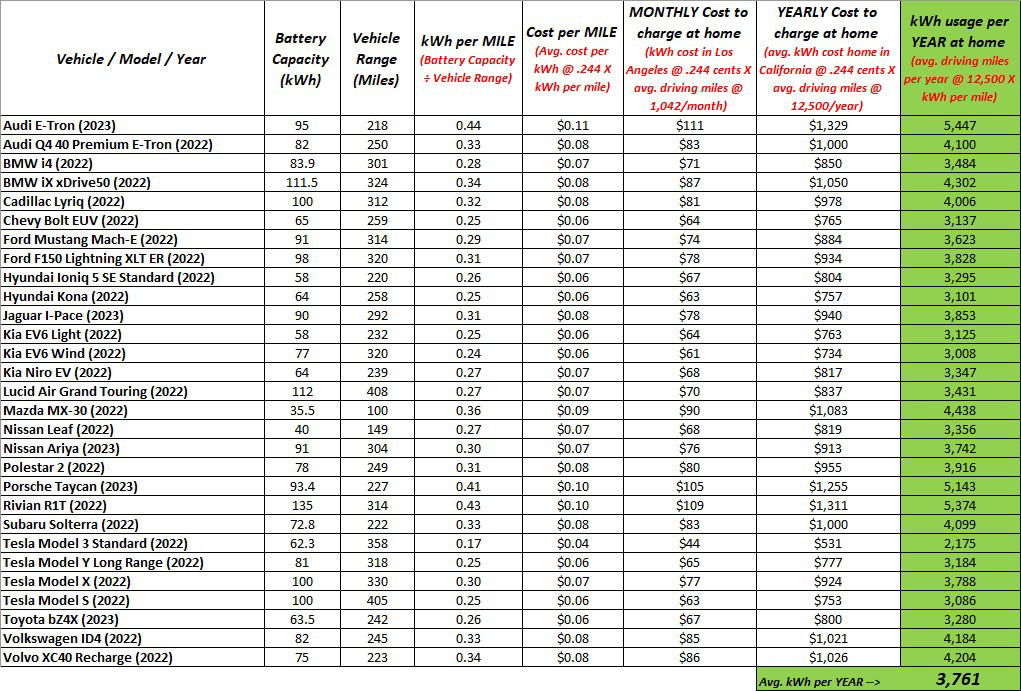In late August 2022, the Advanced Clean Cars II (ACC II) Regulations were approved which means by 2035, gas-powered vehicles that include passenger cars, trucks and SUVs will no longer be sold in California. This is a huge step forward in the Zero-Emissions Initiative for cleaner air and to slow down the greenhouse effect that causes global warming. The approval not only means overall increased demand for electricity but also abruptly changes the mindset of those intending to purchase a new vehicle in the near future. For some, the announced regulations may even sway them to purchase an electric vehicle (EV) now, even at their higher prices.
The notion of never having to stop at a gas station, conveniently charging at home, less vehicle maintenance, and more advanced features like self-parking, autonomous driving capability, and high torque acceleration are surely drawing consumers to take the plunge into electric vehicles. However, current EVs in the market are coming with much heftier price tags. The overwhelming demand, short supply, and limited models available from every vehicle manufacturer continue to intensify their steep price. In addition, the subject matter of conveniences/inconveniences and overall cost-savings of charging EVs are also highly regarded discussion points.
If you are an early adopter of an EV, you already know what it takes to charge up around town and at home. And, if you’re considering the purchase of one in the near future, you’re likely already researching what it takes and how much electricity it will cost to charge one at home and on-the-go.
COST OF CHARGING ELECTRIC VEHICLES AT HOME
Charging an EV can take place at home, work, and at the growing number of charging stations around the country. There are also different speeds and costs associated with charging EVs depending on where you’re located. The information we put together here will provide you with a general idea of how much you’ll spend on electricity when charging an EV at home (only). The information is based on the latest electric rate charges in Los Angeles and the average miles driven in our state of California.
To calculate how much it costs to charge an electric vehicle, you will need four key pieces of information:
- Battery capacity of the EV (think of this as the size of the gas tank)
- Vehicle range (rated miles of the EV’s battery from full to empty)
- Electricity rate (cost of electricity per kWh at your location)
- Driving miles on average per year
Our chart below shows various data points and the formulas used (in red) to get the cost results for electricity associated with a variety of EVs today. For the cost breakdown, we used the latest average electricity rate for Los Angeles at $0.244 per kWh. You can change this rate to reflect the price in your city. We’re also using 12,500 miles per year which is the average miles driven in California. This criterion can also be changed to reflect your own driving miles per year.

Compared to gas vehicles, EVs are definitely less expensive when it comes to the cost of fueling (charging) them at home. It’s more likely that a one-time gas fill-up at the pump will be more expensive than an entire month of charging an EV. In our chart, the least expensive vehicle to charge is a Tesla Model 3 at only $44 a month.
Our chart also includes a kWh usage per year column for fully charging at home. This way, if you purchase an EV and you’re looking at your electric bill, you’ll know a good portion of the kWh usage is associated with charging your EV.
And, if you’re considering solar power for your home, this column will also help in appropriately sizing a solar system that adds charging to an existing or future EV. Based on our calculations, you will need approximately an additional 3.7 kWh system on average to power most EVs today for an entire year. That way you can completely avoid the increasing price of electricity from your local utility company.

